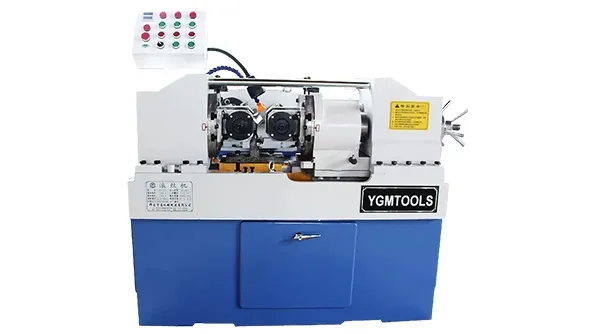
-
 Afrikaans
Afrikaans -
 Albanian
Albanian -
 Amharic
Amharic -
 Arabic
Arabic -
 Armenian
Armenian -
 Azerbaijani
Azerbaijani -
 Basque
Basque -
 Belarusian
Belarusian -
 Bengali
Bengali -
 Bosnian
Bosnian -
 Bulgarian
Bulgarian -
 Catalan
Catalan -
 Cebuano
Cebuano -
 Corsican
Corsican -
 Croatian
Croatian -
 Czech
Czech -
 Danish
Danish -
 Dutch
Dutch -
 English
English -
 Esperanto
Esperanto -
 Estonian
Estonian -
 Finnish
Finnish -
 French
French -
 Frisian
Frisian -
 Galician
Galician -
 Georgian
Georgian -
 German
German -
 Greek
Greek -
 Gujarati
Gujarati -
 Haitian Creole
Haitian Creole -
 hausa
hausa -
 hawaiian
hawaiian -
 Hebrew
Hebrew -
 Hindi
Hindi -
 Miao
Miao -
 Hungarian
Hungarian -
 Icelandic
Icelandic -
 igbo
igbo -
 Indonesian
Indonesian -
 irish
irish -
 Italian
Italian -
 Japanese
Japanese -
 Javanese
Javanese -
 Kannada
Kannada -
 kazakh
kazakh -
 Khmer
Khmer -
 Rwandese
Rwandese -
 Korean
Korean -
 Kurdish
Kurdish -
 Kyrgyz
Kyrgyz -
 Lao
Lao -
 Latin
Latin -
 Latvian
Latvian -
 Lithuanian
Lithuanian -
 Luxembourgish
Luxembourgish -
 Macedonian
Macedonian -
 Malgashi
Malgashi -
 Malay
Malay -
 Malayalam
Malayalam -
 Maltese
Maltese -
 Maori
Maori -
 Marathi
Marathi -
 Mongolian
Mongolian -
 Myanmar
Myanmar -
 Nepali
Nepali -
 Norwegian
Norwegian -
 Norwegian
Norwegian -
 Occitan
Occitan -
 Pashto
Pashto -
 Persian
Persian -
 Polish
Polish -
 Portuguese
Portuguese -
 Punjabi
Punjabi -
 Romanian
Romanian -
 Russian
Russian -
 Samoan
Samoan -
 Scottish Gaelic
Scottish Gaelic -
 Serbian
Serbian -
 Sesotho
Sesotho -
 Shona
Shona -
 Sindhi
Sindhi -
 Sinhala
Sinhala -
 Slovak
Slovak -
 Slovenian
Slovenian -
 Somali
Somali -
 Spanish
Spanish -
 Sundanese
Sundanese -
 Swahili
Swahili -
 Swedish
Swedish -
 Tagalog
Tagalog -
 Tajik
Tajik -
 Tamil
Tamil -
 Tatar
Tatar -
 Telugu
Telugu -
 Thai
Thai -
 Turkish
Turkish -
 Turkmen
Turkmen -
 Ukrainian
Ukrainian -
 Urdu
Urdu -
 Uighur
Uighur -
 Uzbek
Uzbek -
 Vietnamese
Vietnamese -
 Welsh
Welsh -
 Bantu
Bantu -
 Yiddish
Yiddish -
 Yoruba
Yoruba -
 Zulu
Zulu
Different Types of Thread Rolling Machines and Their Manufacturers Explained
Types of Thread Rolling Manufacturers A Comprehensive Guide
Thread rolling is a manufacturing process used to create threads on cylindrical components, allowing for the efficient assembly of parts in various industries, including automotive, aerospace, and plumbing. Unlike traditional cutting methods, thread rolling is a cold forming process that enhances the strength and durability of the threads. Various manufacturers specialize in this unique process, each offering a range of techniques and machinery to produce high-quality threaded components. In this article, we will explore the different types of thread rolling manufacturers and the technologies they employ.
1. Conventional Thread Rolling Manufacturers
Conventional thread rolling manufacturers primarily use flat dies or cylindrical dies to produce threads. The process typically involves feeding the workpiece into a pair of rotating dies, which create the thread profile through compressive forces. This method is highly effective for producing large quantities of uniform threaded parts. Companies specializing in conventional thread rolling tend to focus on high-volume production, optimizing their processes to maximize efficiency and minimize costs.
2. CNC Thread Rolling Manufacturers
CNC (Computer Numerical Control) thread rolling manufacturers leverage advanced computer technology to enhance the precision and complexity of the threading process. These manufacturers use CNC machines equipped with multiple axes, enabling them to create intricate thread designs and specifications with high repeatability. The use of CNC technology is particularly beneficial for producing custom threads and small batch sizes, catering to industries that require specialized components. CNC thread rolling allows for real-time adjustments, reducing lead times and improving overall productivity.
3. Specialty Thread Rolling Manufacturers
types of thread rolling manufacturer

Specialty thread rolling manufacturers focus on producing unique thread profiles and designs that may not be achievable through standard processes. These manufacturers often work closely with clients to develop bespoke solutions tailored to specific applications. This includes various types of threads such as acme threads, buttress threads, and more. Specialty manufacturers utilize advanced tools and techniques to create threads designed for specific operational conditions, thus enhancing performance in their intended applications.
4. High-Speed Thread Rolling Manufacturers
In environments where speed is crucial, high-speed thread rolling manufacturers utilize advanced machinery designed for rapid production. These manufacturers often serve industries that require large quantities of threads in a short time frame, such as automotive and electronics sectors. Their machines are capable of handling multiple workpieces simultaneously, significantly reducing cycle times. Innovations in technology, including servo-driven systems, allow for increased speed without compromising the quality of the threaded components.
5. Multi-Stage Thread Rolling Manufacturers
Multi-stage thread rolling manufacturers employ a series of rolling operations to create complex threaded components. This method is ideal for producing threads with intricate profiles that require multiple passes through different sets of dies. By integrating several stages of thread rolling, manufacturers can achieve tighter tolerances and more robust threads. This approach is often used in applications such as fasteners, where precision and strength are paramount.
Conclusion
Thread rolling is an essential process in modern manufacturing, driven by the need for durable and precise threaded components across various industries. The type of manufacturer chosen for thread rolling can significantly impact the quality and efficiency of the production process. From conventional and CNC manufacturers to specialty and high-speed producers, each offers unique advantages and capabilities tailored to specific needs. As technology continues to evolve, the future of thread rolling manufacturing promises even greater advancements in precision, speed, and versatility, ensuring that industries can meet their growing demands for quality threaded products.
